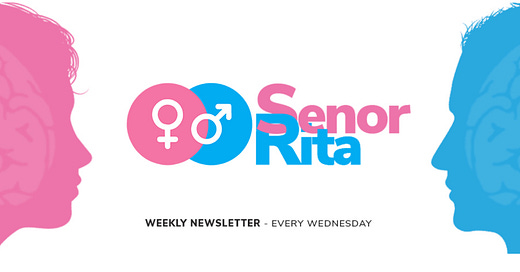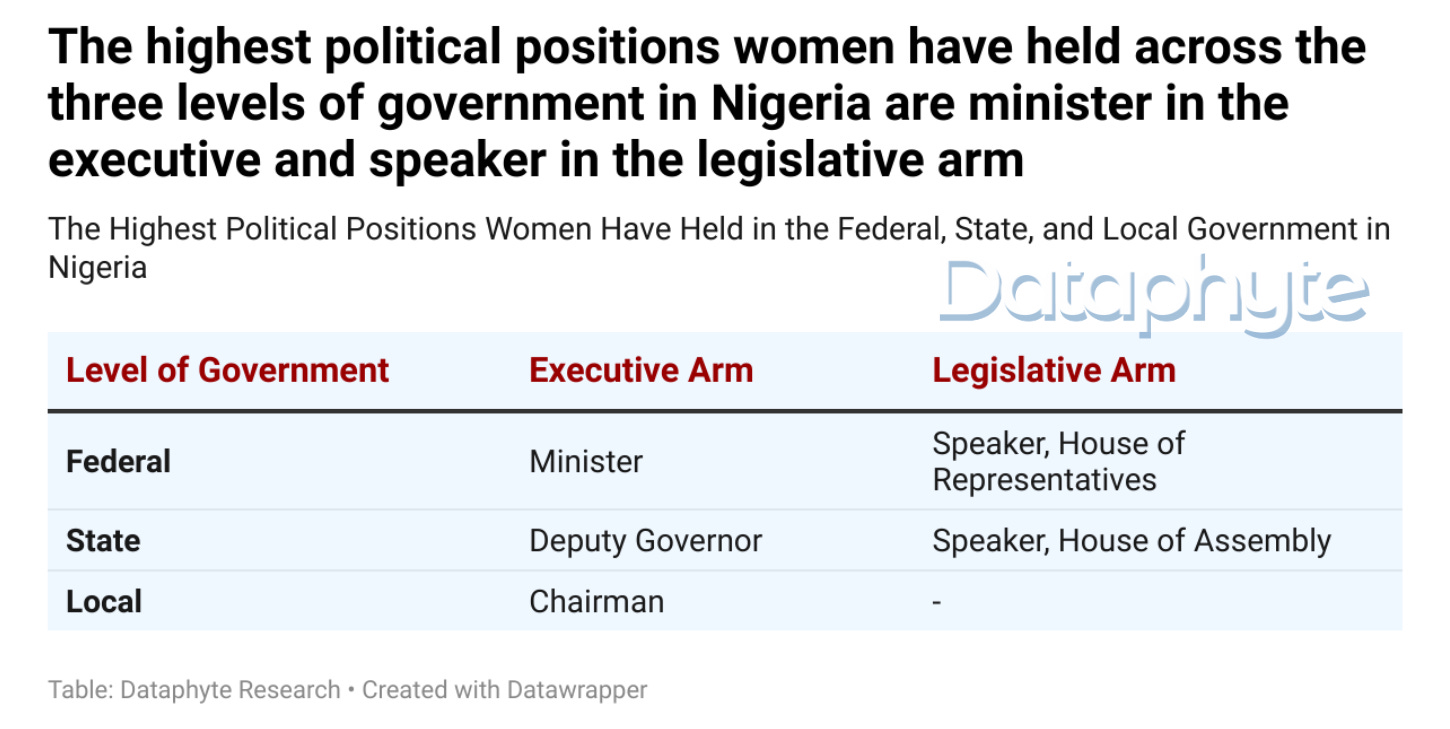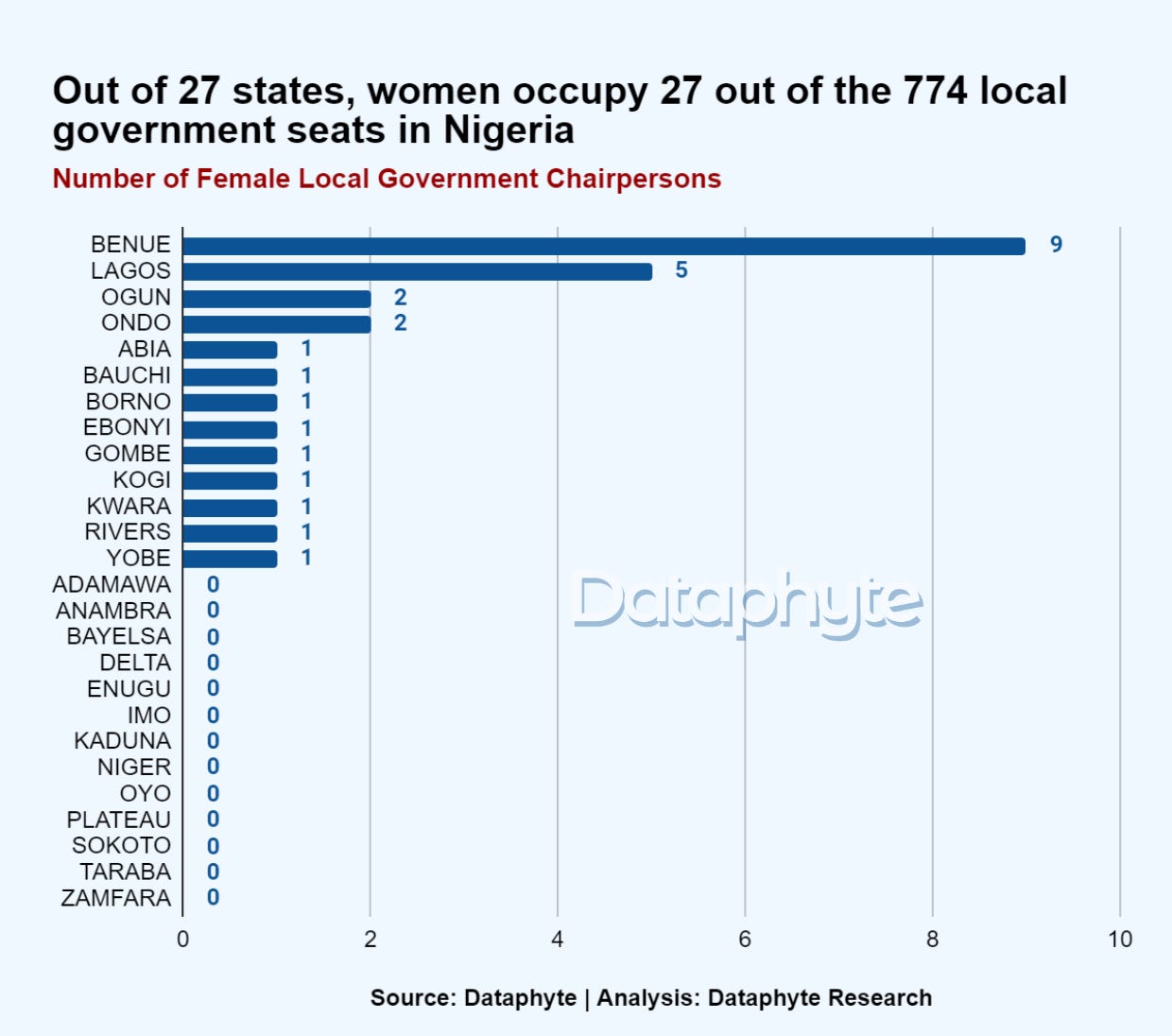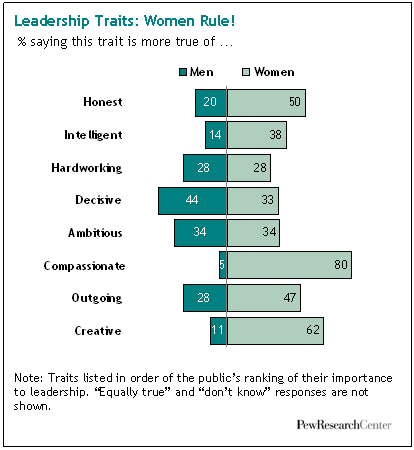LG Autonomy: Women May Face Stiffer Competition for Chairperson’s Role
+Comparing Female and Male Leaders
The Supreme Court of Nigeria has delivered a judgment granting financial autonomy to Nigeria’s 774 Local Government Areas (LGAs).
The local government is the only tier in Nigeria's 3-tier government that has female executive Chairs, and this development could improve their performance as they have more discretion on financial matters.
However, as governance at the local governments assumes more financial significance, women may face stiffer competition emerging as executive heads of local government councils, as they do with state and federal executive positions of a governor and president respectively.
The highest political positions women have attained across the three levels of government in Nigeria are speaker of the House of Representatives in the legislative arm and minister in the executive.
At the state level, the highest position women ever held is the post of the state deputy governor and speaker of the House of Assembly.
For the Local government level, women have been elected as chairman to head the local government unit.
Out of Nigeria's 774 local government areas, there are only 27 female local government chairpersons across the 27 states with accessible records.
In these states, Benue leads with 9 female local government chairpersons out of 23, making it the state with the highest number of women in this role.
Additionally, Lagos has only 5 female chairpersons among its 37 Local Council Development Areas (LCDAs). Ogun and Ondo states each have 2 female chairpersons. Other states have either one or no female local government chairpersons.
Comparing Female and Male Leaders
The new local government autonomy will likely improve the efficiency of women in governance than their male counterparts.
For instance, in Nigeria, female politicians like Kofoworola Ademola, Margaret Ekpo, Hajia Gambo Sawaba, Funmilayo Ransome Anikulapo-Kuti, Obiageli Ezekwesili, Ngozi Okonjo-Iweala, and Bisi Adeleye-Fayemi demonstrated good leadership while in power
Meanwhile, a research from the Pew Research Center shows that women are likely to perform better than men in leadership. The survey shows that women possess Intelligence, are compassionate, outgoing, creative, and more honest than men, and honesty, according to the survey, is the most important leadership trait measured in the survey.
However, data showed that women politicians in Nigeria could be as dishonest and corrupt with public funds as their male counterparts in Nigeria.
Several top female politicians such as Stella Uduah, Patricia Etteh, Kemi Adeosun, Serah Orene, Diezani Alison, Iyabo Obasanjo, Adenike Grange, Ibru Cecilia, Betta Edu, Ndi Okereke were accused of being involved in corrupt practices like some of their male counterparts.
Women Representation in the Nigerian Politics
In 2023, there were 451 males and 18 females in the Federal House of Assembly and House of Representatives. This shows that more males are represented in the decision-making compared to females who have less representation.
In the executive arm of government, there is less representation of women than men.
There are 7 females and 39 males in the executive arm of government. Also, under the Judicial system, there are 7 males and 3 females.
Meanwhile, the issue of underrepresentation of women in the Nigerian parliament is not new, it has become a reoccurring issue.
However, this imbalance in women's representation in politics may increase gender-biased policymaking and decisions in the executive and the parliament, leading to a lack of attention to women's issues such as gender-based violence, sexual harassment, girl child education, child marriage, and female gender mutilation.
Also, this underrepresentation is against the Sustainable Development Goals (SDGs’30) and the United Nations, which advocates for women’s equal participation and leadership in political and public life.
Nigeria’s Female Representatives Lowest in Africa
According to the Women, Peace and Security Index (WPS) 2023, only 4% of the Nigerian parliament consists of women, the lowest percentage among the 48 Sub-Saharan African countries on the list.
On the other hand, Rwanda has made significant progress in gender balance in public governance, with women accounting for 54.7% of the Rwandan parliament.
This indicates that the Rwandan government has achieved fair representation between genders, and ranks first in female inclusion in the parliament among the 48 Sub-Saharan African Countries.
Why Women Should Be Considered
Research shows that women's inclusion in politics is not only a social, economic, and political good but also a fundamental necessity for a thriving democracy. It challenges entrenched power structures and relationships that have perpetuated an unjust and uneven distribution of power between men and women.
A study shows that higher numbers of women in parliament generally contribute to stronger attention to women's issues. Women's political participation is a fundamental prerequisite for gender equality and genuine democracy. It facilitates women's direct engagement in public decision-making and is a means of ensuring better accountability to women.
Also, the United Nations advocates that political accountability to women begins with increasing the number of women in decision-making positions. One of the pillars of UN Women's work is advancing women's political participation and good governance, to ensure that decision-making processes are participatory, responsive, equitable, and inclusive.
Thanks for reading this edition of SenorRita. It was written by Kafilat Taiwo and edited by Oluseyi Olufemi.










